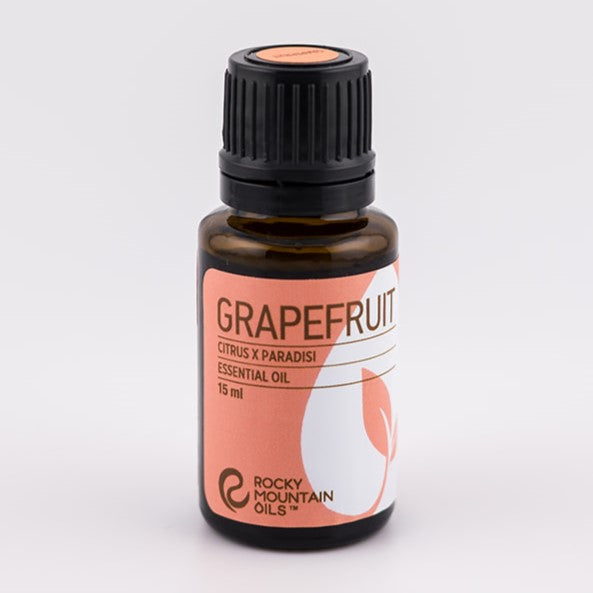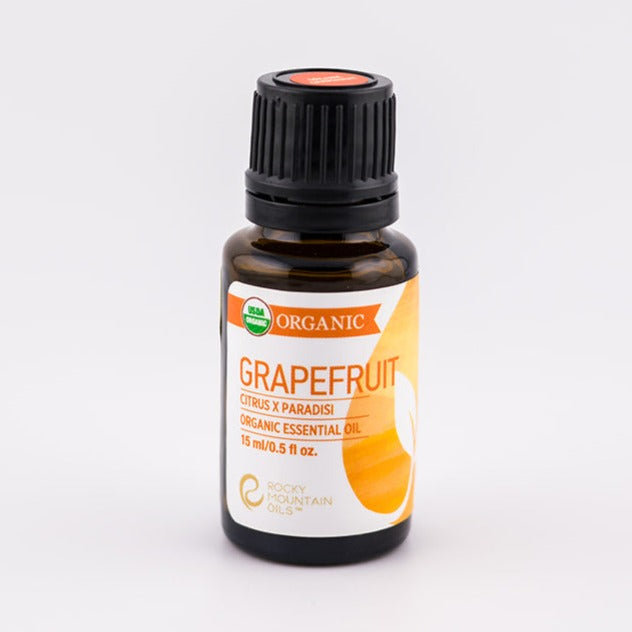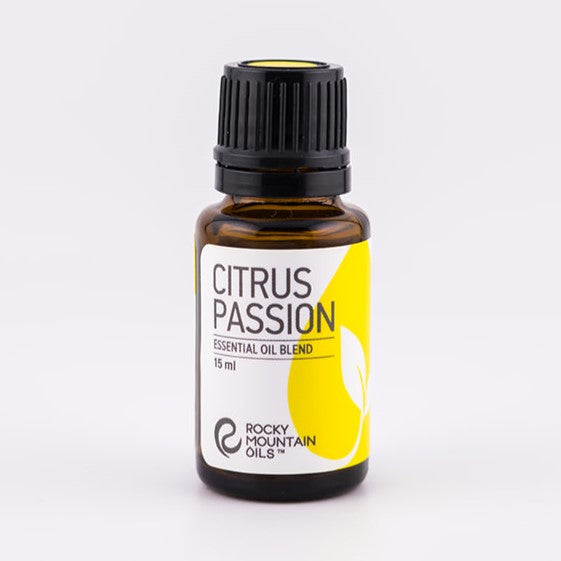Surprising Insights: Is Grapefruit Essential Oil Safe for Dogs?
Grapefruit Essential Oil
Grapefruit essential oil, known for its refreshing citrus scent, has long been a staple in aromatherapy and natural wellness circles. Extracted from the peel of the grapefruit, this oil is celebrated for its refreshing aroma and potential health benefits. But when it comes to our four-legged companions, the question arises: is grapefruit essential oil safe for dogs?
The use of essential oils has seen a significant rise in popularity, not just among humans but in pet care as well. As pet owners increasingly turn to natural remedies for their furry friends, it's crucial to understand the implications and safety of these choices. This article aims to provide a comprehensive look at grapefruit essential oil in the context of canine health, offering insights from veterinary experts, research findings, and real-life experiences from dog owners.

Understanding Essential Oils for Dogs
Canines and Scent Sensitivity
Dogs possess a highly acute sense of smell, far superior to humans. This heightened sensitivity means that what might be a pleasant or mild aroma to us can be overwhelming or even harmful to them. It's important to consider this when introducing any strong scents, such as essential oils, into your pet's environment.
General Safety of Essential Oils for Pets
While some essential oils can offer benefits, others can be toxic. The key is to know which oils are safe and how to use them properly. Grapefruit essential oil, in particular, poses unique challenges due to its chemical composition. It's crucial to understand these nuances to protect your pet's health.
Grapefruit Essential Oil: Composition and Properties
Key Components
Grapefruit essential oil contains compounds like limonene and linalool, which are known for their aromatic properties. However, these same components can be problematic for dogs if not used correctly.
Potential Benefits
Despite the risks, some proponents of natural pet care suggest that grapefruit essential oil could have beneficial properties, such as promoting a sense of calm or even repelling fleas. Yet, the evidence is mainly anecdotal, and the risks may outweigh these potential benefits.
Risks Associated with Grapefruit Essential Oil for Dogs
Toxicity Concerns
The primary concern with grapefruit essential oil is its potential toxicity. Dogs metabolize oils differently than humans, and what is harmless to us can be dangerous for them. In particular, citrus-based oils like grapefruit are known to be more hazardous.
Possible Side Effects
Adverse reactions can include skin irritation, digestive upset, and even more severe issues like liver damage. It's imperative to be aware of these risks before considering grapefruit essential oil for your dog.
Veterinary Insights on Essential Oils and Dogs
Expert Opinions
Many veterinarians advise against using grapefruit essential oil in dogs due to its potential toxicity and skin sensitivity. It's crucial to consult with a veterinarian for professional guidance before considering the use of essential oils on or around dogs.
Case Studies and Research
Limited research on essential oil use in dogs highlights the potential risks, including skin irritation, ingestion-related toxicity, and respiratory issues. To ensure your dog's safety, consult with a veterinarian for guidance on safe essential oil usage and potential adverse reactions.
Alternative Safe Essential Oils for Dogs
Recommended Essential Oils
Safer alternatives to grapefruit essential oil for dogs include lavender and chamomile essential oils, known for their mild scents and lower risk of adverse reactions. It's important to dilute these oils properly, consult with a veterinarian, and monitor your dog for any adverse effects when using them.
How to Choose the Right Oil
Choosing the right oil for your dog's diet requires considering their specific health, dietary, and age-related needs, as well as consulting with a veterinarian for personalized recommendations. It's essential to ensure the oil is of high quality and free from additives while introducing it gradually and following recommended dosages to support your dog's well-being.
The Grapefruit Debate: Pros and Cons for Canine Health
Supporting Views
Advocates for using grapefruit essential oil in dogs often cite its potential to improve coat health, repel pests, and even enhance mood. These benefits are primarily based on anecdotal evidence and the known properties of the oil in human use.
Counterarguments
However, skeptics point out the lack of scientific evidence supporting these claims, especially in relation to dogs. The potential risks, including toxicity and allergic reactions, are often deemed too high compared to the unproven benefits.

Dilution and Application of Essential Oils for Dogs
Safe Dilution Ratios
If you choose to use essential oils for your dog, dilution is critical. Essential oils should never be used in their pure form. A general guideline is to use a dilution ratio of one drop of essential oil to one tablespoon of carrier oil.
Application Methods
Methods of application vary, but standard practices include diffusing the oil in a well-ventilated area, applying it topically after proper dilution, or adding it to pet shampoos. Direct application or ingestion should be avoided unless expressly advised by a veterinarian.
Home Remedies vs. Professional Advice
DIY Approaches
While DIY remedies can be tempting, it's essential to approach them with caution, especially when they involve your pet's health. Home remedies are not a replacement for professional veterinary care.
Seeking Veterinary Guidance
It is always best to consult with a veterinarian before introducing any new element, like essential oils, into your pet's routine. They can provide guidance based on your dog's specific health needs and history.
Is grapefruit essential oils safe to diffuse around dogs?
Grapefruit essential oil should be used with caution around dogs. While it's generally considered safe in small quantities, it can be toxic to dogs if ingested in large amounts or if they are exposed to concentrated forms of the oil. Diffusing a small amount of diluted grapefruit essential oil in a well-ventilated area is unlikely to harm your dog, but it's essential to monitor their behavior for any signs of discomfort or irritation.
However, if your dog has a history of sensitivity to certain scents or respiratory issues, it's best to avoid diffusing essential oils altogether or consult with a veterinarian for guidance on safe usage. Always prioritize your pet's well-being and safety when using any essential oils around them.

Can you put grapefruit essential oil in a diffuser?
Yes, you can put grapefruit essential oil in a diffuser. Grapefruit essential oil is a popular choice for aromatherapy and can be safely diffused to fill your space with its refreshing and uplifting aroma. When using essential oils in a diffuser, it's essential to follow the manufacturer's instructions for your specific diffuser model.
Typically, you'll add a few drops of grapefruit essential oil to water in your diffuser's reservoir, and then the diffuser will disperse the oil into the air, creating a pleasant and invigorating atmosphere. Just be cautious not to use too much oil, as a little goes a long way, and it's always a good idea to ensure proper ventilation in the room to prevent overpowering scents.
What are the side effects of Grapefruit essential oil?
Grapefruit essential oil, derived from the peel of the grapefruit fruit, is generally considered safe when used in moderation. However, like many essential oils, it can potentially cause side effects in some individuals. Common side effects may include skin irritation, such as redness or itching, if applied directly to the skin without proper dilution with a carrier oil. Inhaling the aroma of grapefruit essential oil can sometimes lead to mild respiratory discomfort or allergic reactions in sensitive individuals.
Additionally, when consumed orally, grapefruit essential oil can interact with certain medications and may lead to adverse effects, as it can inhibit the activity of enzymes responsible for metabolizing drugs. It is crucial to exercise caution and conduct a patch test before using grapefruit essential oil on the skin and consult with a healthcare professional, especially if you are pregnant, nursing, or taking medications, to ensure its safe usage.
FAQs
What are the primary concerns with using grapefruit essential oil around dogs?
The primary concerns include potential toxicity, skin irritation, and adverse reactions due to dogs' heightened sensitivity to strong scents and certain compounds found in grapefruit essential oil.
Are there any safe alternatives to grapefruit essential oil for dogs?
Safe alternatives include lavender and chamomile essential oils, which are generally considered milder and less likely to cause adverse reactions in dogs.
How can I safely use essential oils around my dog?
To use essential oils safely, always dilute them correctly, use them in a well-ventilated area, avoid direct application or ingestion, and consult with a veterinarian beforehand.
What should I do if my dog has a reaction to grapefruit essential oil?
If your dog reacts to the oil, immediately stop its use, ensure your dog is in a well-ventilated area, and consult your veterinarian for appropriate medical advice and treatment.
Can grapefruit essential oil benefit a dog's health in any way?
While some believe it may improve coat health and mood, there is limited scientific evidence to support these claims for dogs, and the potential risks often outweigh these unproven benefits.
Is it necessary to consult a vet before using essential oils on dogs?
Yes, consulting a veterinarian is crucial before using any essential oils on dogs to ensure safety and address any specific health concerns your pet might have.
Conclusion: Making the Best Choice for Your Dog
In conclusion, the safety of grapefruit essential oil for dogs is a nuanced topic that requires careful consideration. Based on current knowledge and veterinary advice, it's necessary to weigh the potential benefits against the risks. Always prioritize your dog's health and well-being, and when in doubt, seek professional guidance.




